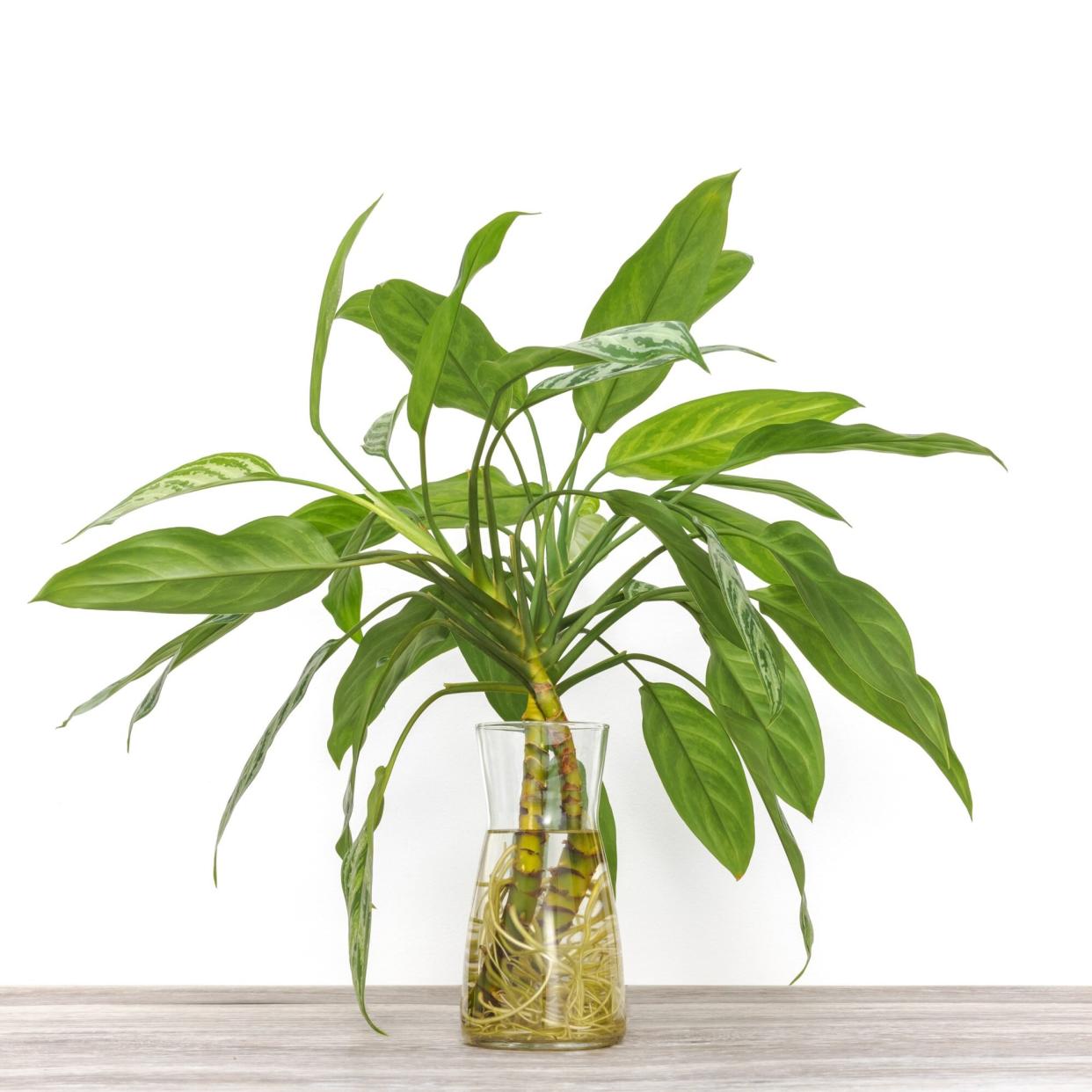Everything You Need to Know About Chinese Evergreen Plants

Getty Images
Chinese evergreen plants are favored both by novice gardeners and those with certified green thumbs for good reason: Andrew Gaumond, a botanist and director of content at Petal Republic, says the plant's scientific name, Aglaonema, captures its beauty. "It comes from the Greek words aglos (shining) and nema (thread), which describes the gleaming appearance of the plant's bright colors and patterns."
Native to tropical and subtropical regions of Asia and New Guinea, Gaumond says Aglaonema are symbolically associated with good luck and prosperity in Chinese culture. Currently, there are more than 20 known varieties of Chinese evergreens, all with unique colors and textures. The classic, more familiar plant with leathery green-and-silver leaves is called Emerald Beauty or Silver Bay, but Costa Farms horticulturist Justin Hancock says you can now find the Ultra Pink plant with red-pink leaves, the White Calcite with white polka-dotted leaves, and the Slim Jim with thin leaves—and that's just the tip of the Chinese evergreen iceberg.
Related: Nine Indoor Plants That Make Your Winter More Tolerable
Ideal for Beginners
Chinese evergreen plants are known to be ideal plants for people who have not yet discovered their gardening prowess. Sandra Mejia, founder of The Plant Chica, says she often encourages less experienced customers at her Los Angeles store to start their gardening journeys with Chinese evergreen plants. "They are great first plants because they are really low-maintenance and hard to kill," she explains. "You can have a cool looking plant with so many different colors and leaf patterns in your space, and it doesn't require too much maintenance."
Let There Be (Low) Light
Aglaonema are also low-maintenance because they're low-light plants, DJ Freedem, founder of online plant community the Underground Plant Trade (also known as the UPT), says. "Most low light plants are that way because they grow beneath larger trees and plants in their natural habitats, where sunlight can hardly reach."
This allows the plants to "thrive in almost any environment," Mejia adds—even offices with fluorescent lights. Since Chinese evergreens are perennials, Freedem says they can live for as long as you provide the right care in the right environment, or as long as 10 or more years.
Water Correctly
"Because this plant doesn't require a lot of light, it doesn't require constant watering," Freedem explains. Hancock adds that these drought-tolerant plants "can usually go a few weeks without watering if necessary."
"It's best to water when the top half of the soil feels dry to the touch," Hancock explains. "But how often that happens depends on a range of factors [such as light in the space and type of potting mix being used], so it's impossible to give a set of one-size-fits-all timing." The most important thing is to make sure you let the soil dry between waterings.
Keep Indoors
"Chinese evergreen plants are from warm tropics where it doesn't get cold," Freedem explains, so you shouldn't keep it in temperatures lower than 50-60 degrees Fahrenheit. Other than that, you can place your Aglaonema pretty much anywhere in your home or office space—just don't place it directly in front of a window since it prefers indirect sunlight, Freedem says.
Use the Right Soil
"Chinese evergreen plants prefer fast-draining soil," Mejia says. True to their tropical originals, they don't like sitting in water. When it's time for re-potting, "we recommend doing that in the summer or spring, like you do for most indoor plants," Mejia adds.
Prepare for Flowers
Chinese evergreens are flowering plants, and while those flowers are beautiful, they can disrupt how your plant grows indoors. "Remove [new] flowers from the plant so it can put its energy into the foliage and not the flower," Mejia says.
Purify Your Space
A NASA clean air study found Chinese evergreens to be one of the best air-purifying plants for your home, Mejia says. Freedem adds that the plant's properties specifically cleanse the air of formaldehyde and benzene.
Protect Your Pets
As easy as it is to keep Chinese evergreens happy inside, Mejia stresses one important caveat: pet safety. These plants are toxic for pets when ingested, so make sure to place your greenery in areas where your dog or cat can't access it.

